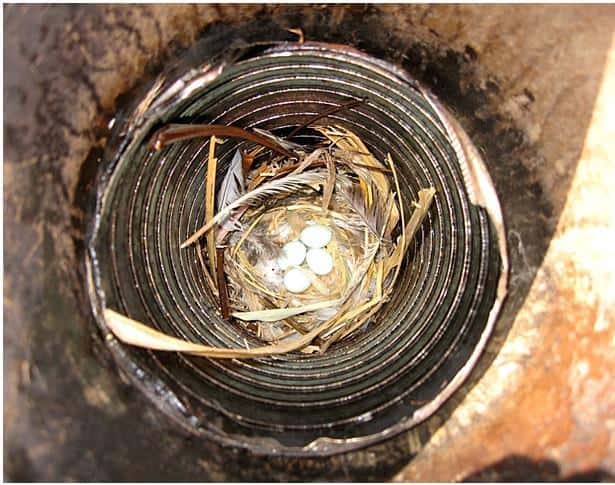Some families think having a pet bird is the best thing in the world. Well, when it comes to your chimney, birds are not the best thing to have. The most commonly found bird inside of the chimney is a chimney swift. These are super tiny birds that can fit almost anywhere. Like other wild birds, they carry diseases that are harmful to humans. The diseases are typically on them or in their droppings.
The two most common diseases carried by Chimney Swifts are psittacosis and cryptococcosis.
Psittacosis is an uncommon infectious disease that is transmitted to humans from being exposed to infected birds. This disease affects the lungs while it may cause pneumonia. Additional symptoms include fever, muscle pain (myalgia), headaches, and a dry cough. It is rare among humans. Bird owners are the most likely to be affected by psittacosis. Symptoms typically start showing between five to fifteen days; symptoms will either come on abruptly or gradually. To protect yourself from catching the disease, it is best to wear a mask and gloves to protect your hands and breathing. Cryptococcosis is a fungal infection caused by inhaling the Cryptococcus Neoformans fungus. This fungus can be found in soils enriched with pigeon droppings. It typically only affects those with a weakened immune system, particularly those who have advanced HIV/AIDS.
Lungs
- cough
- shortness of breath
- chest pain
- fever
- possible skin lesions
Brain
- headache
- fever
- neck pain
- nausea & vomiting
- sensitivity to light
- confusion or changes in behavior
Besides the symptoms, there are more risks in those who have weakened immune systems, especially those that have advanced HIV/AIDS. Those that have received an organ transplant or taking medications for rheumatoid arthritis are at risk of catching the disease. It is difficult to avoid breathing in the bacteria because it is common in the environment. There is a small window of time for treatment before the symptoms set in. Most of the inhaling can be brought on by burning wood in the fireplace that has not been cleaned yet.
As homeowners, chimneys that are attached to the home are susceptible to housing chimney swifts. The chimney swifts will nest in the chimney flue where they will release droppings into your fireplace. Their droppings are the main source of catching these diseases. Scheduling your next chimney sweep will lower the risks of catching both diseases.

